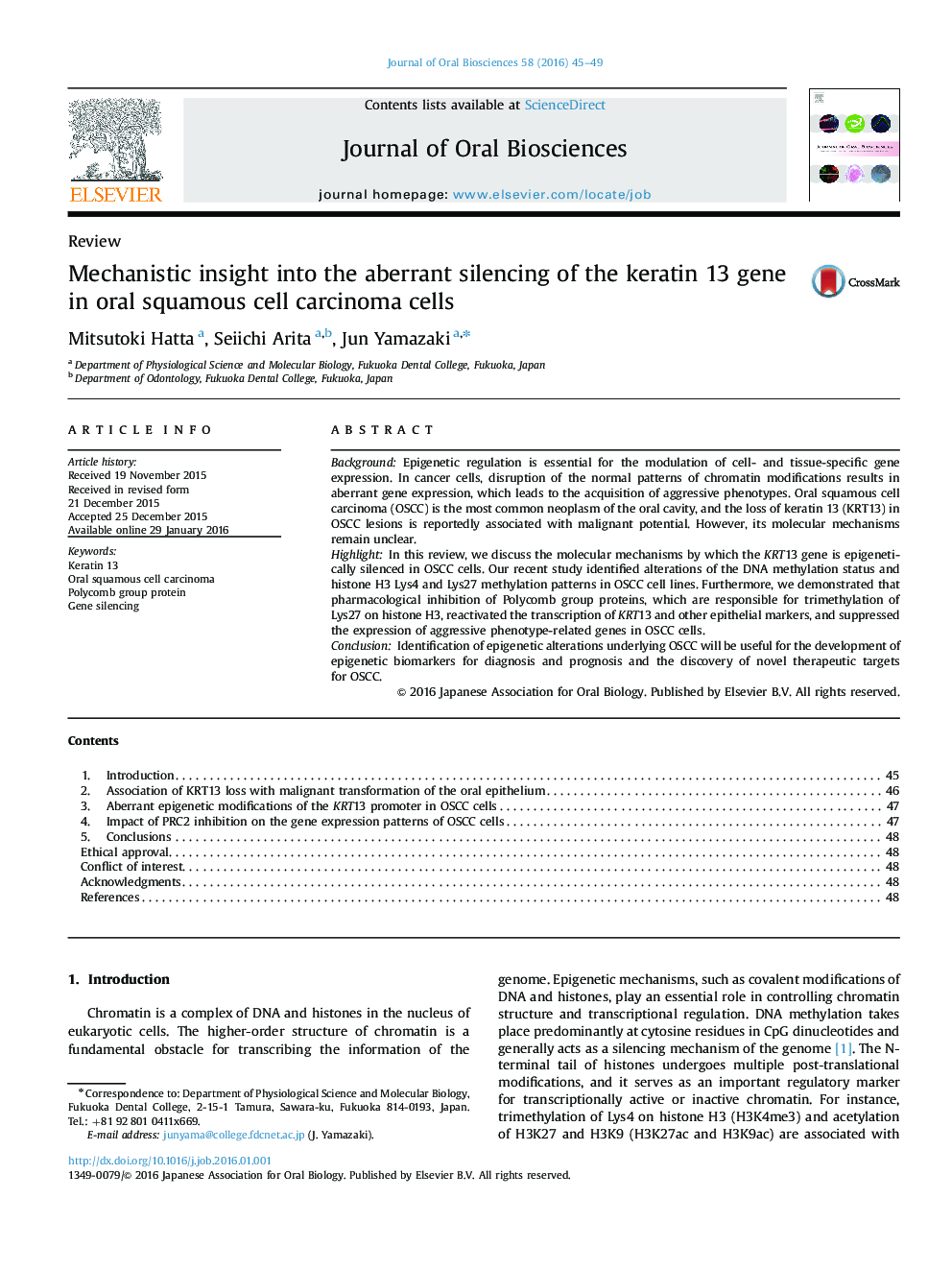| Article ID | Journal | Published Year | Pages | File Type |
|---|---|---|---|---|
| 2776773 | Journal of Oral Biosciences | 2016 | 5 Pages |
BackgroundEpigenetic regulation is essential for the modulation of cell- and tissue-specific gene expression. In cancer cells, disruption of the normal patterns of chromatin modifications results in aberrant gene expression, which leads to the acquisition of aggressive phenotypes. Oral squamous cell carcinoma (OSCC) is the most common neoplasm of the oral cavity, and the loss of keratin 13 (KRT13) in OSCC lesions is reportedly associated with malignant potential. However, its molecular mechanisms remain unclear.HighlightIn this review, we discuss the molecular mechanisms by which the KRT13 gene is epigenetically silenced in OSCC cells. Our recent study identified alterations of the DNA methylation status and histone H3 Lys4 and Lys27 methylation patterns in OSCC cell lines. Furthermore, we demonstrated that pharmacological inhibition of Polycomb group proteins, which are responsible for trimethylation of Lys27 on histone H3, reactivated the transcription of KRT13 and other epithelial markers, and suppressed the expression of aggressive phenotype-related genes in OSCC cells.ConclusionIdentification of epigenetic alterations underlying OSCC will be useful for the development of epigenetic biomarkers for diagnosis and prognosis and the discovery of novel therapeutic targets for OSCC.
